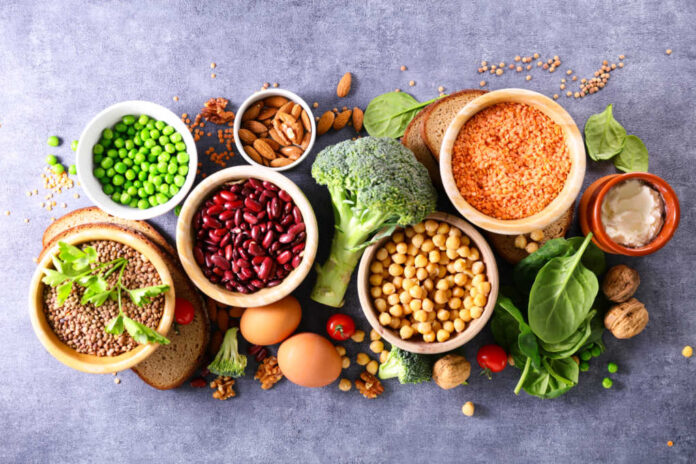
There is no one-size-fits-all answer when it comes to how much food we should be eating every day.
The amount of food we need depends on many factors, including:
- age
- body size
- activity level
- sex
- pregnancy status
- overall health
- health goals
- type of food
The Dietary Guidelines for Americans recommend that adults eat anywhere from 1600 to 3000 calories per day, depending on these factors. According to these guidelines:
- men tend to need more calories than women
- bigger people need more calories than smaller people
- active people need more calories than sedentary people
- we need fewer calories when we reach older age
But counting calories can be tricky and may not be the best way to assess the food we need.
What is a Calorie?
A calorie is not a material thing. It is a unit of measurement.
When we talk about the calories in food, we are talking about the amount of energy that food provides.
The body needs energy to function, and we get that energy from the food we eat.
Different activities require varying amounts of energy. Different foods provide varying amounts of energy.
The Problem With Calorie Counting
Despite the popularity of suggestions to “count and cut calories” or “monitor calories-in and calories-out” as the key to weight management and better health, this focus on calories may be unhelpful.
Calorie estimates can be inaccurate or unavailable. Even with packaged foods with labels, and especially in restaurants, the calorie counts may be significantly underestimated.
Trying to measure the number of calories you are expending is even more difficult. Assessments are based on rough estimates, categorizing activities into broad categories of low, moderate, or vigorous-intensity without measuring how much energy you are truly using.
And more importantly, not all dietary calories have the same nutritional quality. One hundred calories of carrots will not have the same effect on us as 100 calories from a donut.
A Better Strategy For Eating Healthy
Instead of focusing on food quantity, it may be better to focus on food quality.
For weight loss, instead of trying to eat less food altogether, fill your stomach full of foods like fruits, vegetables, whole grains, nuts, and seeds. This suggestion is based on the concept of energy density – the amount of nutrients food provides relative to its size.
Think of the volume of your stomach. If your stomach is filled with donuts, bacon cheeseburgers, or other calorie-dense foods, you’ll get an excessive amount of calories and not enough nutrients.
But an equivalent volume of fruits and vegetables will give you a healthier amount and quality of nutrients calories, meaning you can get the satisfaction of feeling full without risking overeating.
Including various nutrient-rich, low-calorie foods in your diet will give you the energy you need to live a healthy and active life without obsessing over calories or worrying about overeating.






















